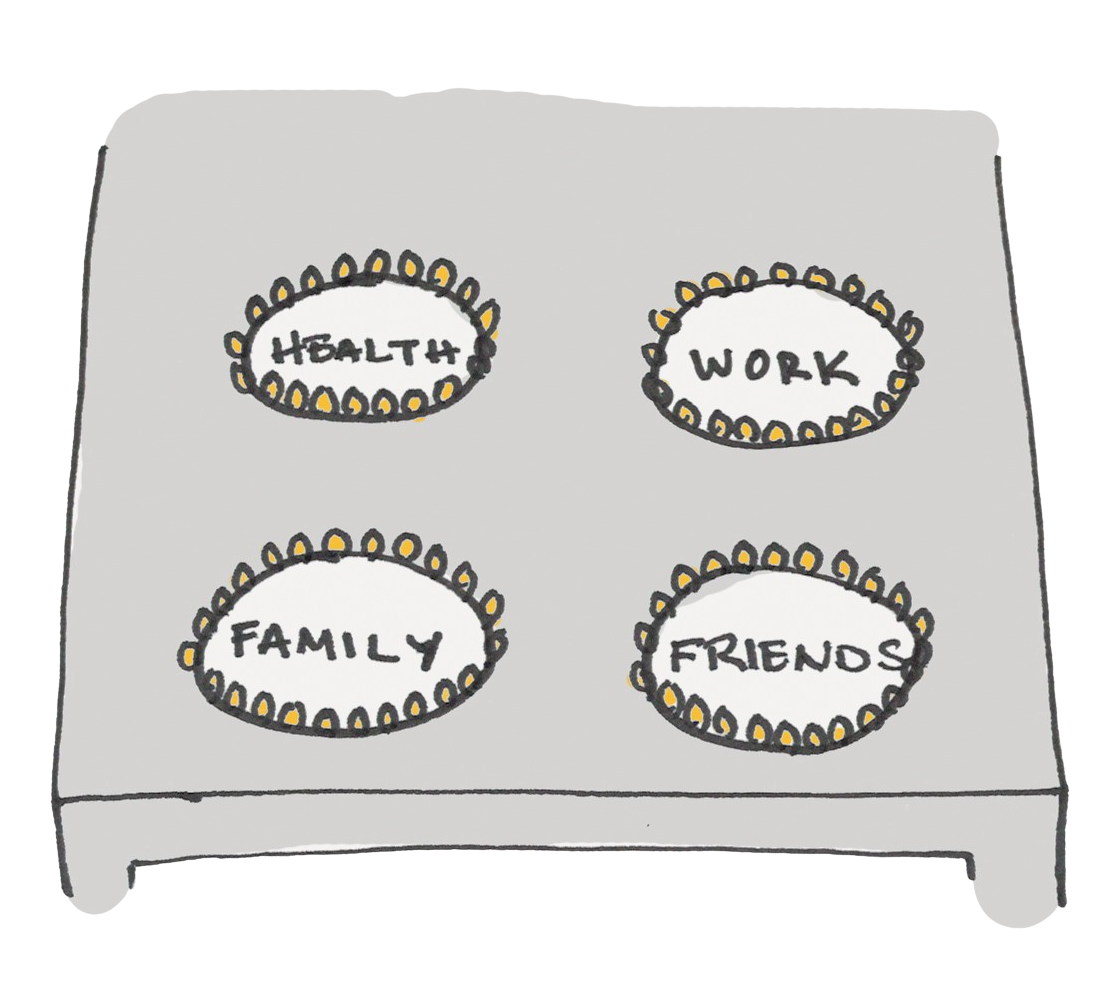With 168 hours in a week, if we work 40 hours a week and sleep 8 hours a day, that leaves a maximum of 72 hours/week for eating, commuting, hobbies, relaxing, and studying. On the key dates page, you can see how many weeks, days, and hours remain before exams and the maximum time that can be allocated to study.
I first came across James Clear, the best-selling author of Atomic Habits, via an article called “The downside of work life balance” where he describes the 4 burners theory.

Imagine that your life is represented by a stove with four burners on it. Each burner symbolizes one major quadrant of your life.
- The first burner represents your family.
- The second burner is your friends.
- The third burner is your health.
- The fourth burner is your work.
The Four Burners Theory says that “in order to be successful you have to cut off one of your burners. And in order to be really successful you have to cut off two.”
James Clear
To pass the Fellowship exams, you will need to turn down some of your burners and tilt your work-life balance toward study. The more efficient you can be with your study process, the more balance you can retain.
Do make a plan. If you miss your checkpoints, use that knowledge to make a less ambitious, more realistic, and achievable plan. Do not leave it up to luck. Make a plan to pass, execute that plan, and pass. If, by chance, you don’t pass, learn from it, regroup, and revisit your plan.
RACGP data notes that candidates who do the practice AKT/KFP exams have 20-37% higher pass rates. So, your plan—simple or detailed—would do well to include “Do the practice exams,” with 2 x 2 hours to do them and another 2 hours each to mark and analyse your performance. All up, that is more or less a full day’s study.
千里之行,始於足下
A journey of 1000 miles begins with a single step
Often attibuted to Confuscius but probably Laozi
